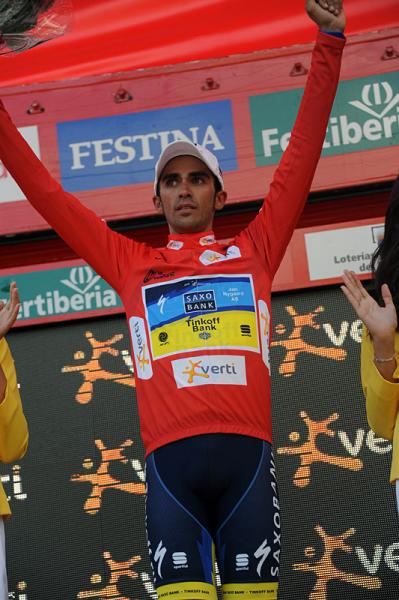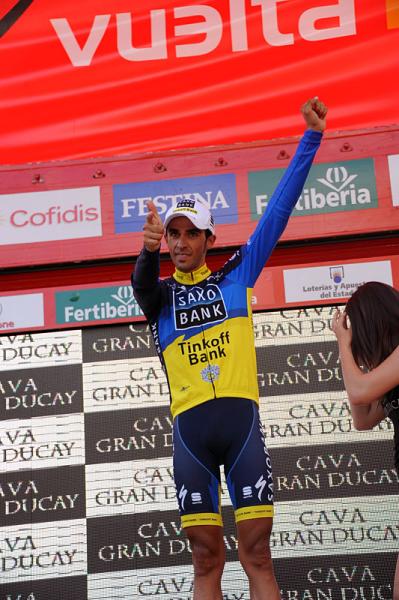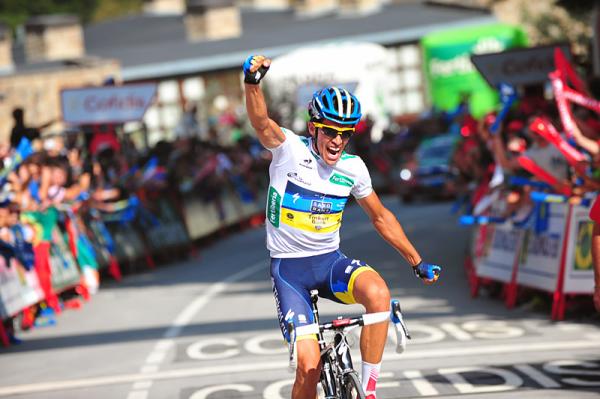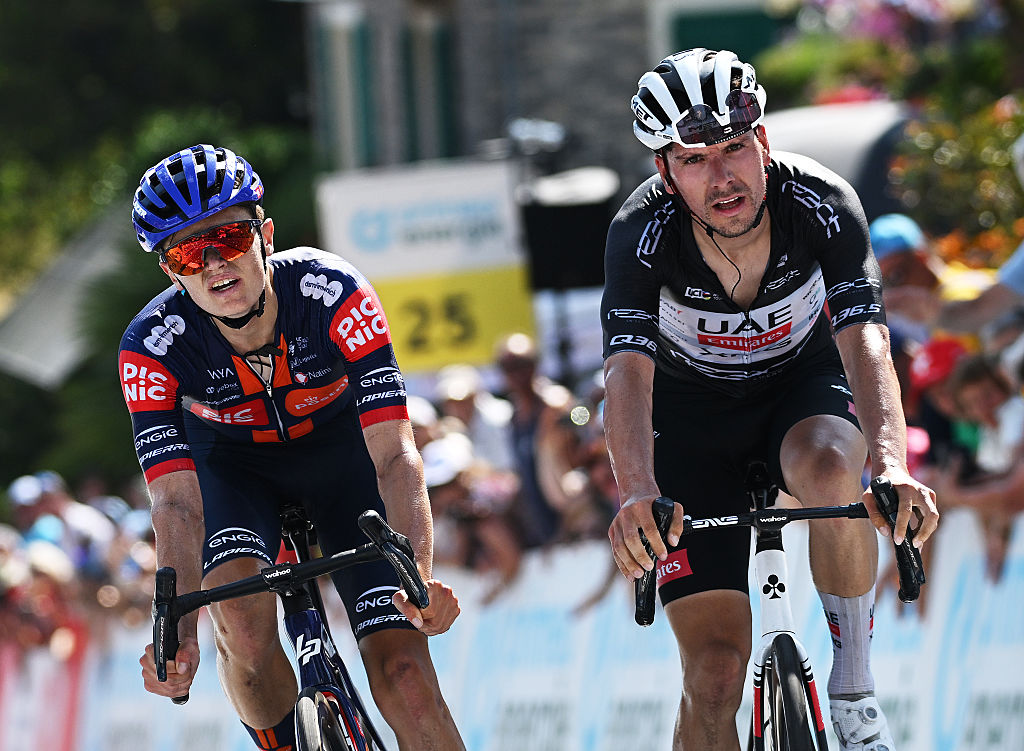Contador fights back tears after turning Vuelta on its head
29-year-old Madrileño claims first win since end of doping ban
The latest race content, interviews, features, reviews and expert buying guides, direct to your inbox!
You are now subscribed
Your newsletter sign-up was successful



Few victories can have felt as sweet for Alberto Contador (Saxo Bank-Tinkoff) as when he crossed the finish line at Fuente Dé on stage 17 of the Vuelta a España. Thanks to his devastating long-distance attack and one of the most memorable days of racing in the Vuelta in the last decade, the Madrileño proved that he was back to the top of his sport and back with a victory that could only be described as resounding to boot.
It was not just a remarkable stage win. Previously 28 seconds down on Joaquim Rodriguez (Katusha) this morning, Contador now goes into the final four days with a 1:52 advantage over Alejandro Valverde (Movistar) and with 2:28 over the former race leader Rodriguez, who drops to third. In one stage, the 29-year-old Contador has turned the tables on his rivals and what could be his fifth Grand Tour win and second Vuelta is now closer than ever.
Fighting back the tears afterwards, Contador described his victory as “one of my three most important triumphs of my career, together with the one I took when I came back from my operation [for a cavernome in his brain in 2004] at the Tour Down
Under [in January 2005] and my win in Paris-Nice in 2007.”
Contador attacked on the third category Collado de La Hoz, around 55 kilometres from the finish. “I had an angel on one shoulder, saying ‘don’t do this, they’re going to roll you over’ and a devil in the other saying ‘go for it’. On this occasion, I didn’t listen to the angel. It was attack or die.”
“People said to me, ‘where are you going so far from the line?’ and in fact it felt a bit like a kamikaze attack.”
“It had been a very fast start. Everybody wanted to get in the break. But when it happened there were a load of my riders up the road already [including his teammates Jesus Hernández and Sergio Paulinho – ed.] and I decided to try and bridge the gap.”
“We didn’t say anything on the radios because a lot of them are pirated by the other teams, but I told them to go for it on the front. “I have to thank [Astana rider and former teammate] Paolo Tiralongo, because he worked hard for me in the break.”
The latest race content, interviews, features, reviews and expert buying guides, direct to your inbox!
Contador tackled most of the 17km-long final climb to Fuente Dé alone after Tiralongo was unable to follow his tempo. “I had thought of attacking three kilometres from the line, but from never so far out,” Contador said. “I kept on eating and drinking because I was worried I would blow. I knew if I blew I would lose the second place overall.”
“It was pure instinct, nothing calculated. I’m not in top form, but I really wanted to do it.”
Contador said he wanted to dedicate the victory to “all the people who have supported me [during his doping ban], all my friends. This has been a very important day for me, because at this point very few people thought I could really win this race. I hadn’t been able to drop Rodriguez on the climbs, but here I could. This is a very big step forward.”
When asked if he could keep the lead to Madrid, however, Contador played it a little more cautiously. “For now I just want to enjoy what I’m feeling right now, I’m not thinking about the future. This is enough for now.”
Alasdair Fotheringham has been reporting on cycling since 1991. He has covered every Tour de France since 1992 bar one, as well as numerous other bike races of all shapes and sizes, ranging from the Olympic Games in 2008 to the now sadly defunct Subida a Urkiola hill climb in Spain. As well as working for Cyclingnews, he has also written for The Independent, The Guardian, ProCycling, The Express and Reuters.

